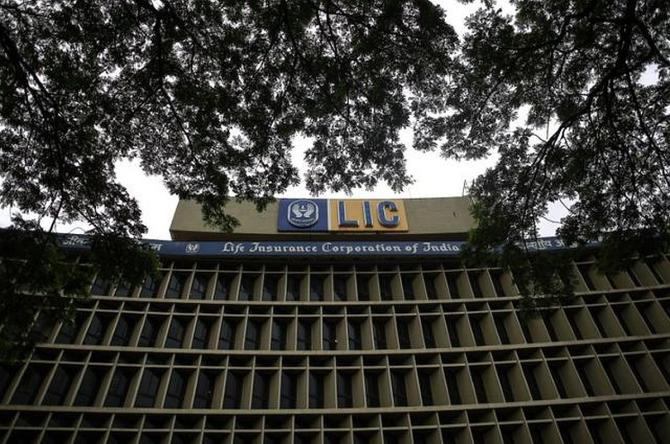Initial public offering (IPO)-bound Life Insurance Corporation (LIC) of India’s assets under management (AUM) increased to Rs 38 trillion as of September 2021, compared with Rs 37 trillion as of March 2021, said sources in the know.

Its AUM is almost 3x the AUM of all the private life insurers in the country and over 15x more than the AUM of the second largest life insurer, SBI Life, as of September 2021.
SBI Life’s AUM was approximately Rs 2.4 trillion as of September 2021, said sources.
Also, as of September 2021, 61.67 per cent of LIC’s AUM was held in participating policies, 37 per cent in non-participating policyholder investments, 1.15 per cent in unit-linked policies, and 0.16 per cent in shareholder’s investment.
The state-owned insurance behemoth is expected to file its draft red herring prospectus this week with the markets regulator Securities and Exchange Board of India.
This is perhaps the largest IPO the Indian capital markets have seen, with the government looking to raise anywhere between Rs 50,000 crore and Rs 1 trillion from LIC’s listing on the bourses.
LIC is also one of the largest institutional investors in the country, with its investments totalling to Rs 39.49 trillion on a standalone basis, of which Rs 9.78 trillion is invested in equities as of September 2021.
Also, over 90 per cent of the equity investments are held in stocks that are a part of the Nifty 200 and BSE 200 indices.
The life insurer is looking to improve the share of non-participating products in its portfolio.
Going ahead, the insurer is looking to focus more on unit-linked insurance plans (ULIPs), as well as protection, annuity, and health products.
Traditionally, LIC has focused more on participating products, such as endowment and money-back plans.
Now, it is looking to diversify its product mix further by increasing sales of its existing non-participating products, as well as launching new products under this category.
In non-participating policies, the profits are not shared by the insurance company with the policyholders and there are no dividends.
A non-participating insurance plan provides only guaranteed benefits to the policyholder.
That is, the sum assured payable on the policyholder’s demise, or the maturity benefits payable when the plan matures.
While LIC still continues to be the largest player in the life insurance market, it is losing market share to the other private players because the private players have a diversified product mix and strong distribution through bancassurance partners.
As of January 2022, LIC’s market share in new business premiums stood at 61.16 per cent, compared with 66.18 per cent in April 2021, thereby losing almost 500 basis points of market share to private sector life insurers.
LIC has traditionally been an agency-driven institution, with 1.33 million individual agents as of January 2022, which is more than 55 per cent of the total individual agents the life insurance industry has.
But lately it has been wanting to diversify its distribution channels.
The state-owned insurance company also has 72 bancassurance partners, comprising eight public sector banks, 42 co-operative banks, six private banks, 13 regional rural banks, and one foreign bank.
It also has 175 alternative channel partners, of which there are 44 insurance marketing firms, 59 brokers, and 72 corporate agents.
Further, the insurance giant also boasts of 3,463 micro insurance agents.
Photograph: Danish Siddiqui/Reuters












 © 2025
© 2025